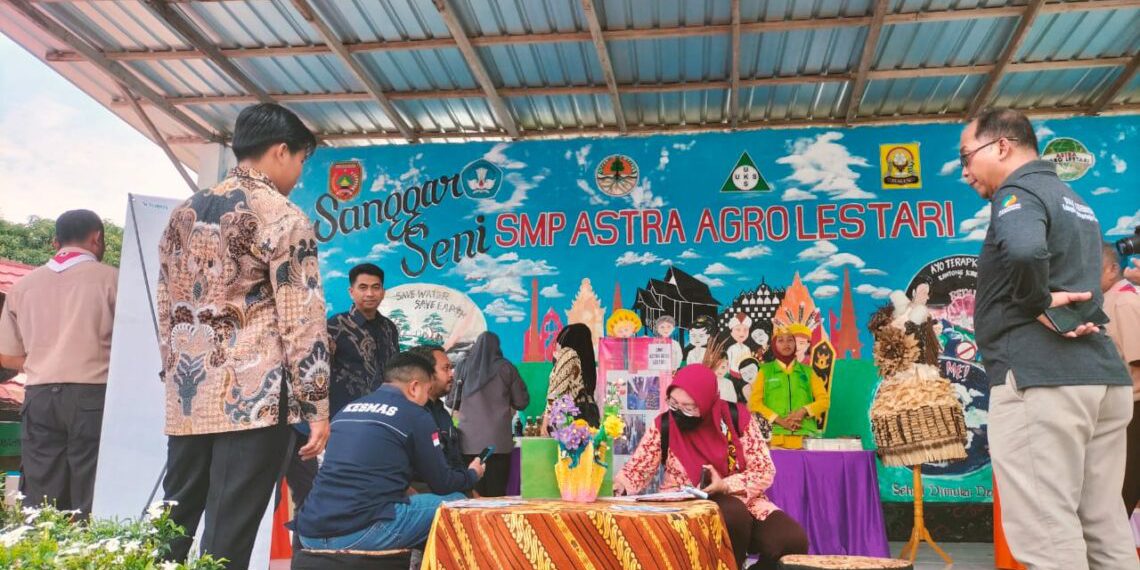The accumulation of single-use plastic waste continues to increase every year. This encourages increased pollution, which will also impact public health. This concern has led to Astra Agro Lestari Junior High School’s initiative to provide early waste management education.
Data from the Ministry of Environment and Forestry (KLHK) shows that waste pollution will reach 26 million tons by 2023. If plastic processing does not immediately become the main concern, this trend is projected to continue and increase to 37 million tons in 2040.
Commemorating the World No Plastic Day on July 3, Astra Agro Lestari Junior High School, under the guidance of PT Gunung Sejahtera Indah Pesona and PT Agro Menara Rachmat (GSIP-AMR), showed its commitment to plastic waste management. Not just sorting plastic waste, Astra Agro Lestari Junior High School students turn plastic into valuable goods.
Astra Agro Junior High School students created a variety of works from plastic waste, ranging from recycled clothes and shopping bags to furniture such as chairs and tables. These works were produced from plastic waste sorted from schools and stalls in the school canteen.
“These tables and chairs are not just for display but are functional. With the eco brick method, this furniture is strong enough for adults to sit on, even with large people,” said Astra Agro Lestari Junior High School Principal Ahmad Rofik in a press release Friday (05/6/2024).
Not only that, the Principal of Astra Agro Lestari Junior High School admitted that the school encouraged students and all school residents to support and succeed in the SEMANGKUP culture (Spirit of reducing Plastic) by bringing lunch and using water bottles to reduce plastic waste pollution at school.
“There are no more single-use plastics in the school area. We encourage the use of reusable cloth shopping bags. Even in the School’s cafeteria, we only use ordinary plates, so you can’t take them away,” he said with a laugh.
Ahmad Rofik continued that this step may still be small. Still, the school continues to build positive habits for all students to contribute to preserving the environment and reducing plastic waste pollution.
Source: Agrofarm.co.id
Disclaimer
This article may contain copyrighted material, the use of which may not have been pre-authorized by the copyright owner. This material is made available for the purpose of giving information and knowledge. The material contained on the Astra Agro website distributed without profit. If you are interested in using copyrighted material from this material for any reason that goes beyond ‘fair use’, you must first obtain permission from the original source










